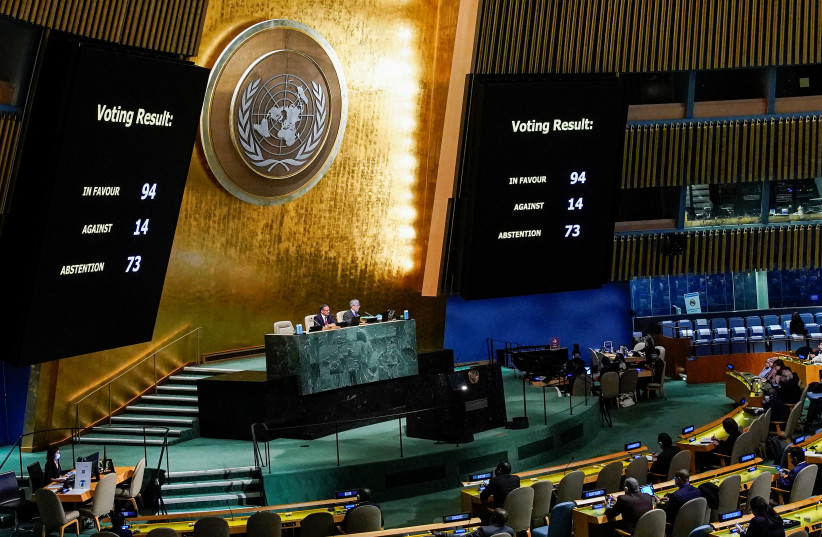The UN human rights office (OHCHR) said on Tuesday that both Russia and Ukraine have tortured prisoners of war during the nearly nine-month conflict, citing examples including the use of electric shocks and forced nudity.
The UN's Ukraine-based monitoring team based its findings on interviews with more than 100 prisoners of war on each side of the conflict since April. The interviews with Ukrainian prisoners of war were conducted after their release, since Russia did not grant access to detention sites, it said.
Matilda Bogner, head of the monitoring mission, told a Geneva press briefing that the "vast majority" of Ukrainian prisoners they interviewed held by Russian forces reported torture and ill-treatment. She gave examples of dog attacks, mock executions, electric shocks with Tasers and military phones and sexual violence.
Bogner, who is one of the UN interviewers and spoke to journalists via videolink from Ukraine, said the treatment was aimed at intimidating and humiliating them. One man in a penal colony near Olenivka told the team that members of Russian-affiliated armed groups "attached wires to my genitalia and nose and shocked me."
"They simply had fun and were not interested in my replies to their questions."
Ukrainian POW

Russia's defense ministry did not immediately respond to an emailed request for comment. Russia, which invaded Ukraine on Feb. 24, denies torture or other forms of maltreatment of POWs.
Ukrainian torture of Russian POWs
On the Ukrainian side, Bogner reported "credible allegations" of summary executions of Russian prisoners, noting that no progress has yet been seen in Ukrainian authorities' investigations into these cases.
Other Russian prisoners reported poor and humiliating conditions of transport and of being packed into trucks or vans naked, with their hands tied behind their backs. The UN team said it had also documented cases of so-called "welcome beatings" at a penal colony.
Ukraine's Ministry of Foreign Affairs did not immediately respond to an emailed request for comment. Kyiv has previously said it checks all information regarding the treatment of POWs and will investigate any violations and take appropriate legal action.
Asked to compare the scale of the abuses by both sides, Bogner said the mistreatment of Ukrainian prisoners by Russians was "fairly systematic" whereas she said it was "not systematic" for Ukraine to mistreat Russian soldiers.
Most of the abuses by Kyiv against Russian POWs were limited to three internment facilities, she said, and were more common during the initial phase of capture.
The team of monitors plans to visit the areas around Kherson, the city that Moscow surrendered last week, to look for additional evidence of abuses among the general population.
UN monitors have already documented summary executions and between 70-80 cases of enforced disappearances and arbitrary detentions in the area, she said.
